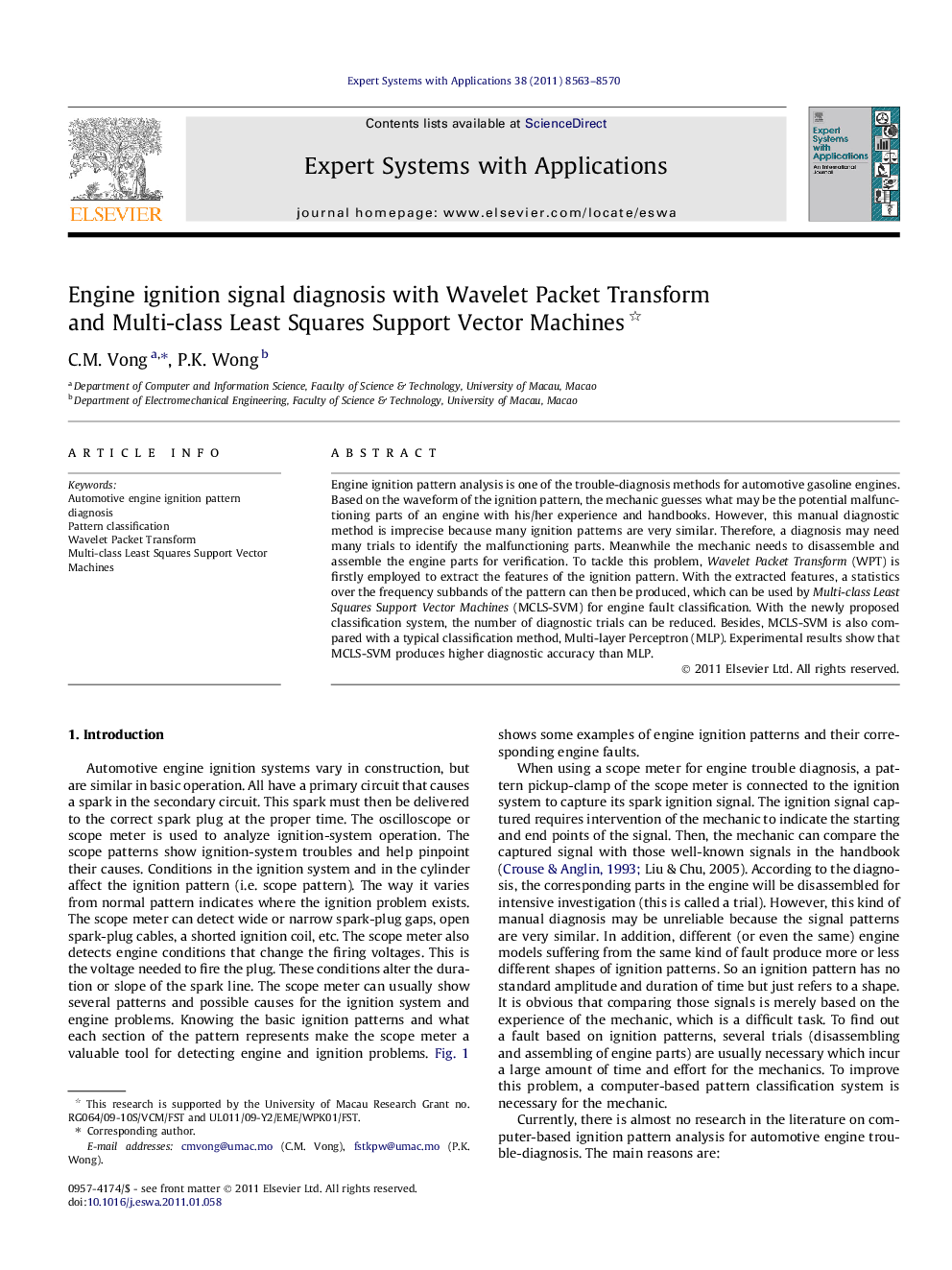| Article ID | Journal | Published Year | Pages | File Type |
|---|---|---|---|---|
| 385682 | Expert Systems with Applications | 2011 | 8 Pages |
Engine ignition pattern analysis is one of the trouble-diagnosis methods for automotive gasoline engines. Based on the waveform of the ignition pattern, the mechanic guesses what may be the potential malfunctioning parts of an engine with his/her experience and handbooks. However, this manual diagnostic method is imprecise because many ignition patterns are very similar. Therefore, a diagnosis may need many trials to identify the malfunctioning parts. Meanwhile the mechanic needs to disassemble and assemble the engine parts for verification. To tackle this problem, Wavelet Packet Transform (WPT) is firstly employed to extract the features of the ignition pattern. With the extracted features, a statistics over the frequency subbands of the pattern can then be produced, which can be used by Multi-classLeast Squares Support Vector Machines (MCLS-SVM) for engine fault classification. With the newly proposed classification system, the number of diagnostic trials can be reduced. Besides, MCLS-SVM is also compared with a typical classification method, Multi-layer Perceptron (MLP). Experimental results show that MCLS-SVM produces higher diagnostic accuracy than MLP.
Research highlights► Engine ignition pattern analysis is a practice for automotive gasoline engine troubleshooting. ► Manual diagnosis is hard because the patterns are very similar. ► Many trials are necessary for disassemble and assemble the engine parts for verification. ► Wavelet Packet Transform combined with Multi-class LS-SVM can help reduce the number of trials. ► Fewer human burden is necessary.
